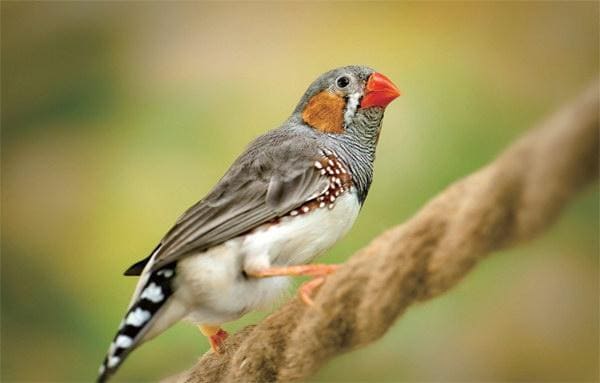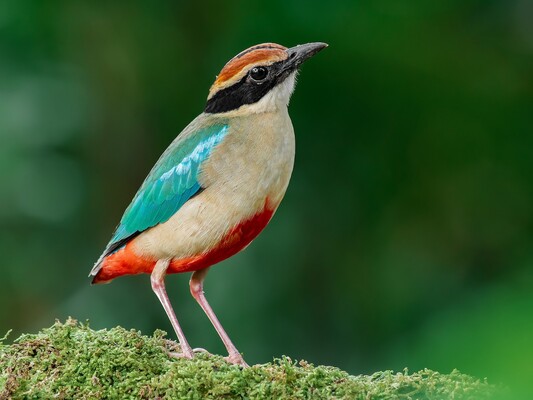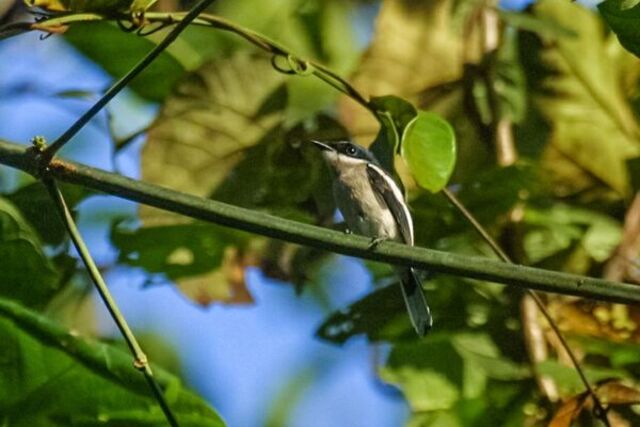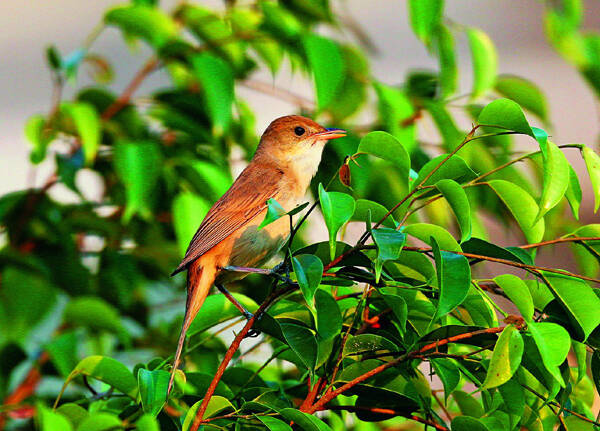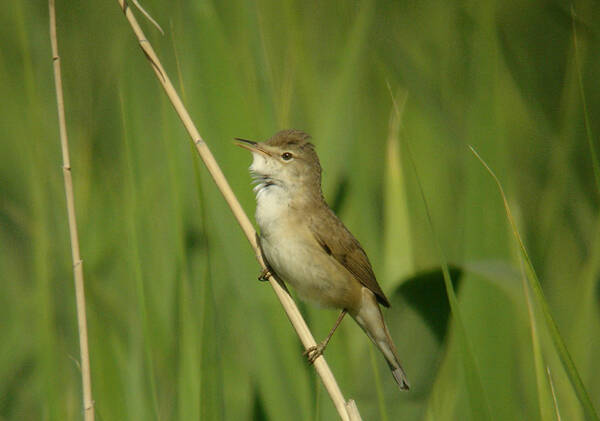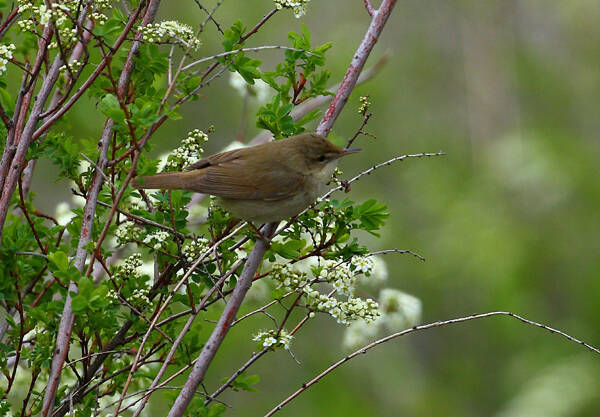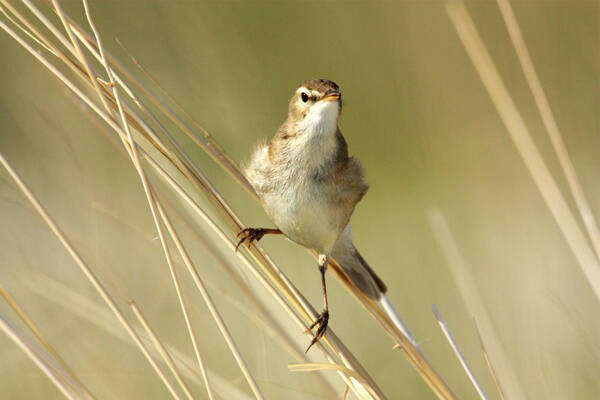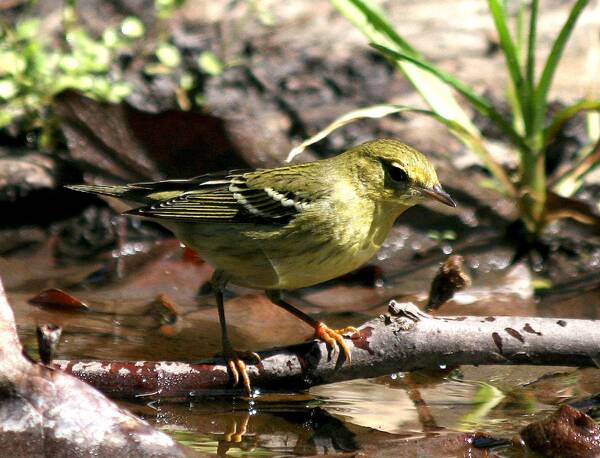Pterorhinus courtoisi
IUCN
LCBasic Information
Scientific classification
- name:Pterorhinus courtoisi
- Scientific Name:Pterorhinus courtoisi,Blue-crowned laughingthrush,Chinese Yellow-throated Laughingthrush, Blue-crowned Laughingthrush, Wuyuan Yellow-throated Laughingthrush, Blue-throated Laughingthrush
- Outline:Songbird
- Family:Passeriformes Thrushidae Laughingthrush
Vital signs
- length:About 25 cm
- Weight:About 50g
- lifetime:About 10 years
Feature
It is one of the few birds with brightly colored feathers among the thrushes.
Distribution and Habitat
The distribution range of the Indigo-crowned Laughingthrush is very small, and it is only found in the Wuyuan County Nature Reserve in Jiangxi Province, China.
Appearance
They have a slender body, with the feathers on the top of their heads shining blue, an olive green band on the shoulders and back, apricot yellow from the throat through the abdomen to the tail, chestnut wings and tail feathers with gray-blue edges, black eye masks and bright yellow throats. The upper body is brown, the back and upper wing coverts are brown, and the flight feathers and tail feathers are gray-brown. The tail tip is black with white edges, and the abdomen and undertail coverts are yellowish and gradually turn white. The two pairs of central tail feathers have a wide black sub-terminal spot, and the remaining tail feathers have white tips. The forehead, eyes, throat around the eyes, nose and ear feathers are black. The upper chest is yellow with orange, the abdomen is yellow, and the undertail coverts are white. The iris is reddish brown; the bill is black brown; the feet are gray.
Details
Blue-crowned laughingthrush is a small-bodied bird of the family Timalis, with no subspecies.

There are dozens of species of Laughingthrush distributed in southern China. Although there are also rare species such as Chestnut-necked Laughingthrush and Brown Laughingthrush, the Indigo-crowned Laughingthrush is definitely a rare and amazing species. The Indigo-crowned Laughingthrush is only found in China, and its distribution area is limited to some small mountain villages in Wuyuan, Jiangxi. There are only about 150 of them left, and the threatened status of the species is "critically endangered", which is an animal rarer than the giant panda.
The name of the Yellow-throated Laughingthrush has always been familiar to bird lovers. The nominate subspecies of the Yellow-throated Laughingthrush is distributed in northeastern India. There are two subspecies that appear intermittently in China, one in Wuyuan, Jiangxi, and the other in Simao, Yunnan. In 2006, Dr. N. J. Collar, a famous British ornithologist and the main compiler of BirdLife International's Red Book and Red List, published an article in the magazine Forktail, upgrading the original Southeast Asian species of Yellow-throated Laughingthrush Garrulax galbanus courtoisi to an independent species Garrulax courtoisi, with a subspecies of G. c. simaoensis (Simao subspecies), and proposed to use Blue-crowned Laughingthrush as the English name of the species. Subsequently, famous ornithologists Mr. He Fenqi and Mr. Yang Lan wrote an article in the 5th issue of Zoological Journal in 2006 to introduce this result, and at the same time proposed to use Indigo-crowned Laughingthrush as the Chinese name of Garrulax courtoisi. From then on, this small bird with indigo head was renamed Indigo-crowned Laughingthrush from Yellow-throated Laughingthrush.
The Indigo-crowned Laughingthrush hides in the evergreen forests close to the village of Yueliangwan, Wuyuan County, Jiangxi Province, China. The area is basically full of ancient trees over a hundred years old, mainly maple poplar, camphor, etc., which cover the sky and block out the sun. Groups of Indigo-crowned Laughingthrush chirp in the forest, flying around, and the white spots on their tail feathers are very obvious. The call is a weak chirp. It feeds on the debris on the ground. Indigo-crowned Laughingthrush likes to eat insects, and also eats earthworms, wild strawberries, wild fir seeds, etc. Indigo-crowned Laughingthrush especially likes to take a bath. Every day at 10 am and around 4 pm, except for stormy weather, Indigo-crowned Laughingthrush always insists on playing in the shallow water flowing by the river, dipping it in clean water, fanning its feathers, and combing and cleaning its beautiful feathers.
The Indigo-crowned Laughingthrush and the Yellow-throated Laughingthrush have similar habits and are gregarious birds. Every year in late March, they appear in groups in the breeding grounds, lay eggs, feed young birds, and then migrate with their families. The habitats they choose are mostly evergreen broad-leaved forests. The bird nests are generally built on large trees with lush branches and leaves, and are built high, with the lowest being more than 5 meters above the ground. One pair of birds nests in one nest, and each pair only hatches once a year. It takes more than 10 days for the eggs to hatch, usually 2 to 4, and the young Indigo-crowned Laughingthrush can find food on their own after two weeks.
The beautiful figure of the Indigo-crowned Laughingthrush always mysteriously disappears and reappears in this long century, giving people suspense. In 1919, Father Riviere collected two specimens in Wuyuan, Jiangxi, which were the earliest records of the Indigo-crowned Laughingthrush. In 1956, the Sino-Soviet joint scientific expedition team also obtained three specimens in Simao, Yunnan, which are now known as the Simao subspecies of the Indigo-crowned Laughingthrush. In the following decades, the return of the Indigo-crowned Laughingthrush has become an unsolved mystery. It always disappears without warning, and suddenly appears at an unknown time. In the past two years (2008), the Indigo-crowned Laughingthrush in Wuyuan has mysteriously disappeared again, and the Simao subspecies that was once recorded has not appeared for 50 years. I wonder when the Indigo-crowned Laughingthrush will meet people again.
Listed in the 2012 Red List of Endangered Species of the World Conservation Union (IUCN) ver3.1-Critically Endangered (CR).
Listed in China's "National Key Protected Wild Animals List" (February 5, 2021) Level 1.
Protect wild animals and eliminate game.
Maintaining ecological balance is everyone's responsibility!

